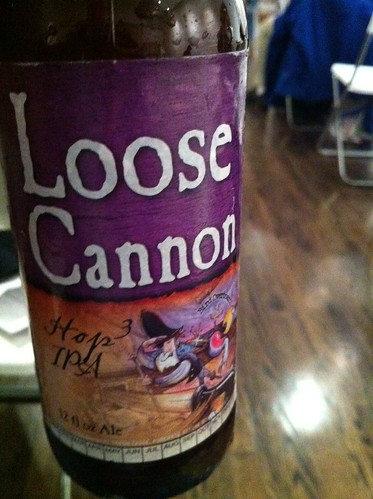
DESCRIPTION
March 8, 2011: Personal Branding and Lessons from Journalism, with local WordPress enthusiasts Ben Balter and Greg Linch.
Greg and Ben will be sharing best practices and how you can take the next step with WordPress as a platform. Pulling from their wide-ranging experiences in journalism, publishing, government, and development, they’ll be discussing how you can use WordPress to craft your personal brand, and what lessons that can be learned from how journalists use WordPress.
We’ve invited the DC Hacks/Hackers group, a meetup for journalists and developers, to join us this month. You can learn more about them at http://meetupdc.hackshackers.com.
Here’s their cheeky bios:
Since 2007, Greg Linch hasn’t had a journalistic job or project in which he hasn’t thought about using or — in most cases — used WordPress. His current job at The Washington Post is the only exception, but it’s only been a few months, so give him time. Most notably, Greg led The Miami Hurricane’s migration to WordPress in 2008 and co-founded CoPress to help other student news organizations do the same. (Twitter: @greglinch.)
An aspiring attorney, a coder, and an all around geek, Ben Balter is a J.D./M.B.A. candidate at the George Washington University and a member of the FCC’s New Media team. When not working or in class, he enjoys tackling otherwise-impossible challenges to sharing information using nothing more than WordPress, duct tape, and occasionally a pack of bubblegum. (Twitter: @BenBalter.)
NOTES
Andy Nacin introduces and thanks sponsors for the beer and space.
April 12 next meetup. Format: lightning round. Looking for speakers.
Greg Linch
Used WP on multiple projects, including Miami Hurricane. NYT using it for blogs. Davis Enterprise using WP for content, then imported into InDesign for print. It’s web to print. (I am skeptical of all-in-one solutions, having seen balky print-to-web systems pushed by journalists who hated the web back in the 90s.)
EditFlow: assign stories, set status for newsrooms. It’s a WP plugin.
AssignmentDesk: interact with community, an open assignment desk.
NPR’s Argo Network uses child themes for local blogs.

WP Courier is an email newsletter plugin. (I need that.)
LivingStories is an interesting experiment in online storytelling.
Good question: how to get reporters to use? Show em how simple it is.
Washington Post is getting a new commenting system. (Yea!)
Ben Balter
Using WP to craft personal brand, take back Google results. Dynamic speaker but then goes into brandspeak, i.e, “what is a brand?”
You’re the Chief Marketing Officer of your brand. Search engine management needed for professional reasons. They show pics of modems.”This is how people used to connect online.” Everyone laughs. I feel old.
No longer defined by a company, you need an online brand (like joeflood.com!). Your content online is your brand, including the embarassing pics. It’s like your college transcript.
73% of recruiters Google you.
WP makes it simple to tell your story.
Grab a domain (key in google searches), describe yourself on your site, setup a basic WP site, start a blog for credibility and engage others, use Google Reader to find things to blog about. It’s like an online brochure about you.
Use Google Analytics to discover your most popular posts.
Be social. Use Facebook, Twitter, etc to promote your posts.
Establish a Board of Directors for your brand.
Update: here’s Ben’s presentation.
MY THOUGHTS
Every journalist should have a web site. Every potential journalist should have a site. Every job-seeker should have a site, if only so that your embarrassing Facebook photos don’t show up in a Google search.
I’ve met writers and editors before who don’t have web sites. They don’t want to learn HTML and still look at the web as a lesser medium. That’s short-sighted. WordPress is not difficult. If you can use Word, then you can create a site in WordPress.
WordPress DC meets monthly. It’s a nice mix of developers, writers, bloggers and other creative and technical folk.